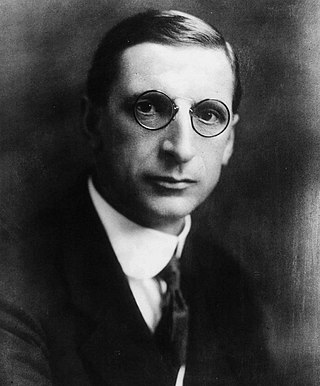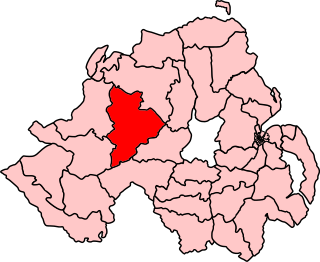
The Irish component of the 1918 United Kingdom general election took place on 14 December 1918. It was the final United Kingdom general election to be held throughout Ireland, as the next election would happen following Irish independence. It is a key moment in modern Irish history, seeing the overwhelming defeat of the moderate nationalist Irish Parliamentary Party (IPP), which had dominated the Irish political landscape since the 1880s, and a landslide victory for the radical Sinn Féin party. Sinn Féin had never previously stood in a general election, but had won six seats in by-elections in 1917–1918. The party had vowed in its manifesto to establish an independent Irish Republic. In Ulster, however, the Unionist Party was the most successful party.

The 1921 Irish elections took place in Ireland on 24 May 1921 to elect members of the House of Commons of Northern Ireland and the House of Commons of Southern Ireland. These legislatures had been established by the Government of Ireland Act 1920, which granted Home Rule to a partitioned Ireland within the United Kingdom.

The 1925 Northern Ireland general election was held on 3 April 1925. It was the second election to the Parliament of Northern Ireland. It saw significant losses for the Ulster Unionist Party, although they maintained their large majority. This was the last election for the Stormont parliament conducted using Single transferable voting, a form of Proportional Representation. Fifty-two members were elected in ten districts, which each elected between four and eight members. The Ulster Unionist government abolished proportional representation during this parliament and replaced it with the first-past-the-post system used in Great Britain.

The 1965 Northern Ireland general election was held on 25 November 1965. Like all previous elections to the Parliament of Northern Ireland, it produced a large majority for the Ulster Unionist Party.

The 1962 Northern Ireland general election was held on 31 May 1962. While the Ulster Unionist Party lost three seats, they retained a large majority as in all previous elections to the Parliament of Northern Ireland.

The 1958 Northern Ireland general election was called on 27 February by 1st Viscount Brookeborough to be held on 20 March 1958.

The 1953 Northern Ireland general election was held on 22 October 1953. Like all previous elections to the Parliament of Northern Ireland, it produced a large majority for the Ulster Unionist Party.

The 1949 Northern Ireland general election was held on 19 February 1949. The election became known as the Chapel-gate election because collections were held at churches in the Republic of Ireland to support the Nationalist Party campaign.

The 1938 Northern Ireland general election was held on 9 February 1938. Like all previous elections to the Parliament of Northern Ireland, it produced a large majority for the Ulster Unionist Party, who won three-quarters of the seats.

The 1933 Northern Ireland general election was held on 30 November 1933. Like all previous elections to the Parliament of Northern Ireland, it produced a large majority for the Ulster Unionist Party.

The 1929 Northern Ireland general election was held on 22 May 1929. Like all previous elections to the Parliament of Northern Ireland, it produced a large majority for the Ulster Unionist Party. It was the first held after the abolition of proportional representation and the redrawing of electoral boundaries to create single-seat constituencies. As with the rest of the United Kingdom, this has made it more difficult for independent and minor party candidates to win seats.

Enniskillen was a constituency of the Parliament of Northern Ireland.

East Tyrone was a constituency of the Parliament of Northern Ireland.

Mid Tyrone was a constituency of the Parliament of Northern Ireland.

South Tyrone was a constituency of the Parliament of Northern Ireland.
East Down was a constituency of the Parliament of Northern Ireland.
Mid Down was a constituency of the Parliament of Northern Ireland.
North Down was a constituency of the Parliament of Northern Ireland.
Iveagh was a constituency of the Parliament of Northern Ireland.


















